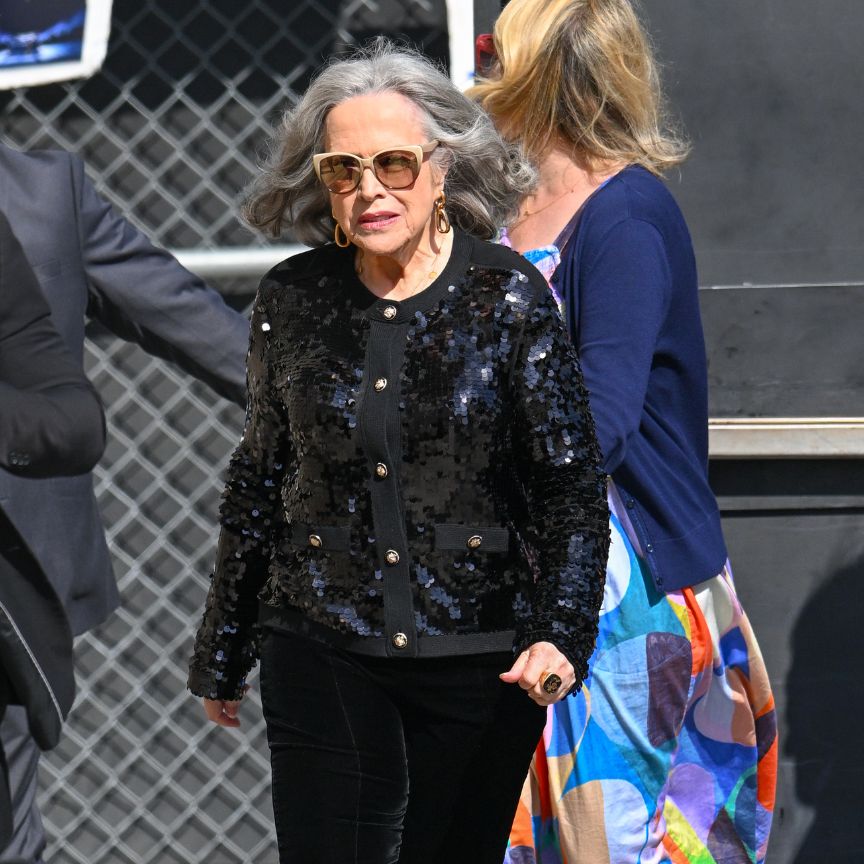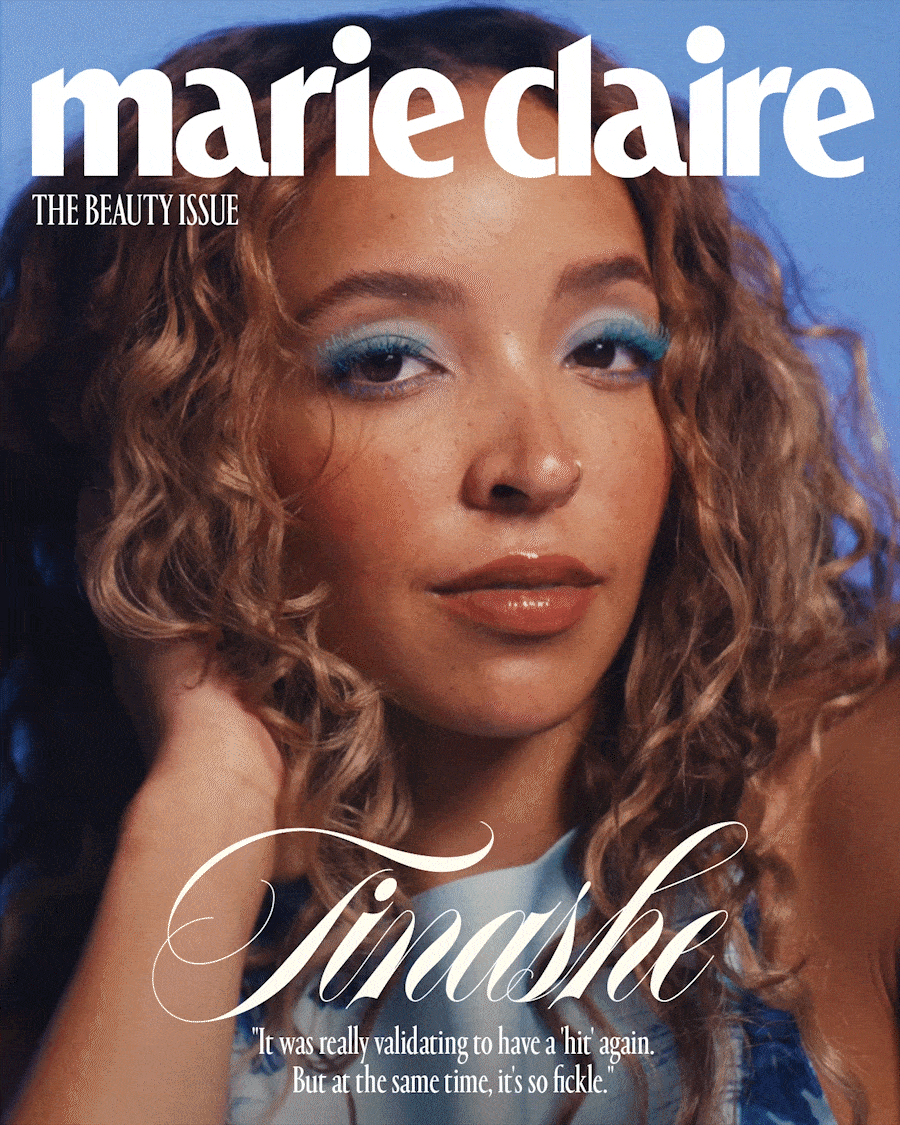CBD Is About to Get Big (Again)
A few years ago, the buzzy ingredient began popping up everywhere—including in our beauty routines—before disappearing as quickly as it came. Now, it’s back, with bold new claims about its benefits.

There was a time, a few years ago, when CBD (the non-psychoactive ingredient found in cannabis) was everywhere everywhere. It was in leggings and lubricant and bed linens; laced cocktails and kombucha and...water. But perhaps nowhere was it more prevalent than in beauty routines. You could wash your hair (and your dog's) with the stuff, soak in a tub of CBD salts, or even slick your lashes and brows with mascara comprised of a marijuana-adjacent formula. Every step of skincare regiments had an option that included the in-demand ingredient. Then, just as quickly as it came, CBD seemed to burn out.
The downfall not due to one reason, but many. In 2018, the federal Farm Bill, an omnibus, multiyear law that governs an array of agricultural and food programs, officially differentiated hemp (cannabis derivatives with concentrations of THC that don’t surpass .3 percent) from marijuana—meaning CBD was no longer considered a Schedule I controlled substance. For brands who were CBD-curious, that was a green light. “The bill was a really major shift,” says Adam Friedman, M.D., professor and chair of dermatology at George Washington School of Medicine & Health Sciences. “It’s why everyone and their mother suddenly came out with CBD-heavy lotions and potions.”
As access grew, so too, did the purported benefits. It calms! It protects! It hydrates! That was especially true in the beauty space, where everyone is always in search of the next magic ingredient. The mainstreaming of marijuana was also growing. Weed laws were changing across the country to be more lax, and Americans were increasingly comfortable smoking weed (openly, at least), and so CBD by proxy got a pass, too.
But for as much promise as the bill initially offered, it created just as much confusion for the brands that jumped on the bandwagon. Saint Jane debuted CBD-forward skincare in 2019, experiencing two years of whirlwind success before being frustrated by regulatory pitfalls, says founder Casey Georgeson. Saint Jane, and others selling CBD, were roadblocked by shipping and payment processing systems like Shopify, Klarna, and PayPal, as despite being federally legal, gray areas remained in the rules around its distribution.
Meta also blocked advertising on social media channels. “You can’t operate a business hamstrung by constraints,” says Georgeson, whose personal Facebook remains blocked.

The other thing, was that some CBD products didn’t live up to the lofty claims, leading to consumer fatigue and eye-rolling. Those big, hollow promises were also problematic given the FTC's rules around drug versus product claims, adds Christina Ross, director of science and policy at Credo. (Credo’s pioneering “clean” beauty store used to stock pages of products with CBD; now, a search on their website turns up two.) “The regulatory challenges were really hard for brands to overcome, especially as the market got oversaturated and CBD wasn’t a point of differentiation anymore. The juice wasn’t worth the squeeze. Why deal with the extra headache and cost to include CBD in a formulation?”
But recently, a new wave of CBD acolytes have appeared. And this time, they're bringing receipts, namely a growing body of research rallying around the idea that CBD does indeed have benefits. “[Topical CBD] can regulate skin turnover, pigment and oil production, wound healing, hair growth, literally everything the skin does,” says Dr. Friedman, who is one of the researchers behind a compelling new study published by JAAD.
Stay In The Know
Get exclusive access to fashion and beauty trends, hot-off-the-press celebrity news, and more.

The research found that CBD (specifically nano-encapsulated, or min CBD particles) may prevent damage from the sun. Participants (19 of them, which Dr. Friedman says is common for a study of this nature) slathered on nano-CBD to an area of the skin that was then exposed to three times the normal amount of UV radiation for two weeks. Those who used CBD cream had less redness and 50 percent incurred no DNA damage.
Dr. Friedman isn't the only believer. Teresa Song, M.D., a New-York-based board-certified dermatologist, points to another study showing CBD’s potential for neutralizing free radicals caused by UV exposure.
Research also suggests that CBD has the ability to decrease cell senescence (cell aging) and improve wound healing, which could translate to collagen production and “anti-aging” benefits. While claims that CBD may possess the ability to repair skin cells with anti-inflammatory and antioxidative potential suggest that, besides turning back the clock, it could also be a boon for conditions characterized by inflammations like eczema, Song says.
The studies all suggesting that perhaps CBD's seemingly lackluster results not due to a big problem, but a small one. The ingredient as a whole may have promise, but the tempestuous market that popped up to fill an insatiable need (and opportunity) wasn't always properly sourcing CBD, if they were actually using it all.
It's all worth noting, though, that most of these studies were conducted in cell lines rather than with actual patient participants, so more research is needed to validate any findings on a population scale. Same goes for any evidence of CBD being used for sun protection. The effects on cancer-causing UVB damage were not measured, says Abigail Waldman, M.D., a dermatologist at Boston’s Brigham & Women Hospital. But Dr. Waldman agrees that pending additional, substantive clinical human studies, CBD does hold significant skincare potential. In other words, she has, ahem, high hopes.
And sometimes, that's enough. Many brands are getting back in the game. According to an Allied Market Research report the CBD skincare market is projected to increase by five billion between 2023 and 2028.

Dr. Friedman released a Defense & Repair Cream, from his new CBD skincare line CielementsMD, which promises to quash inflammation and bolster your skin barrier. Other brands also stand by the combination of CBD and other hero ingredients: Muri Lelu’s CBD skincare line, which launched in 2020, is still going strong. Founder Gilah Elul says that using CBD alongside a retinoid has been key to their longevity in the space. “CBD’s calming, soothing anti-inflammatory powers really uplevel the retinoid and allow more people to lean into using it on a regular basis," Elul says. Paris-based brand Yon-Ka has a new CBD Serum. And you can still find CBD on the product lists of brands like Saint Jane, Herbivore, True Botanicals, Melach 33, Qul, and African Botanic. Sometimes it’s prominently advertised, other times it’s barely mentioned, but brands recognize its value.
The buzz is once again, albeit slowly and more thoughtfully, building again. This time, in dermatologist's offices, esthetician appointments, and spas, where CBD's calming and anti-inflammatory properties are being put to full use.
There remains some lingering confusion around regulations and what exactly it can do, but “CBD's not like retinol in that it's just immediately understood,” says Jessica Trieber, vice president of brands at Credo. Ultimately, she believes the potential is there. And hey, everyone loves a comeback story (and a chance to eliminate a wrinkle or two, too).
Fiorella Valdesolo is a contributing editor at the Wall Street Journal Magazine, and has written for New York, Vogue, Town & Country, Allure, Time, National Geographic, CR Fashion Book and Oprah. She was the cofounder and Editor-in-Chief of the late James Beard Award–winning food magazine Gather Journal. She lives in Brooklyn with her partner Nate, their six-year-old daughter Aluna, and their dog Rosie.
-
 Princess Beatrice's Husband Pays a Rare Tribute to These Royal Family Members on Instagram
Princess Beatrice's Husband Pays a Rare Tribute to These Royal Family Members on InstagramEdoardo Mapelli Mozzi shared some behind-the-scenes snaps from the F1 Grand Prix in Bahrain.
By Kristin Contino
-
 Allow Kathy Bates to Convince You to Grow Out Your Grays
Allow Kathy Bates to Convince You to Grow Out Your GraysOne look at her new style and you'll be canceling your root touch-up pronto.
By Ariel Baker
-
 After the 'Yellowjackets' Finale Answered Many of Our Burning Questions, Will It Return for Season 4?
After the 'Yellowjackets' Finale Answered Many of Our Burning Questions, Will It Return for Season 4?The showrunners still have plans to show how the girls get out of the wilderness.
By Quinci LeGardye
